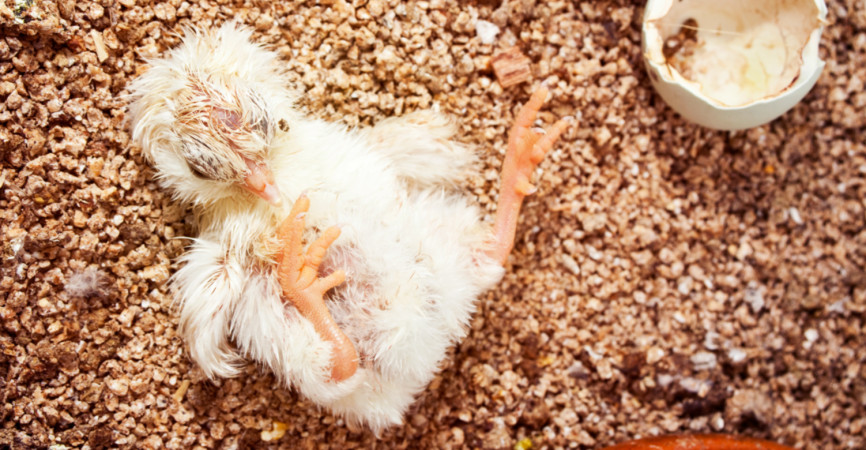
A day-old chick.
Spring is the time to start making babies in the henhouse, says Megg Miller. We mean baby chickens, of course!
September is a great time to think about chickens. Littlies hatched now will be laying eggs for you before the days shorten next autumn. That means fresh eggs over winter, so get started now.
Start well
You need fertile eggs and a broody hen to incubate them. Not all hens go broody and not all make good mums. A hen is broody when it sleeps over in the nest and refuses to leave, fluffing out its feathers and emitting clucking sounds.
And of course you’ll need a rooster for fertile eggs. Hens lay regardless of whether a male is present but a rooster is required for sperm to fertilise the ova. Can’t keep a male? Don’t fret, you can buy fertile eggs. Check online poultry sites or visit a local breeder.
Peace and safety
Set your broody hen away from the flock in foxproof accommodation. Her nest should be close to the ground with lots of fresh litter inside. Set her with several golf balls first then when she settles, pop the fertile eggs under her at night. How many? If you can see eggs she has too many and some will chill over the setting period.
Sexing chicks
The shape of eggs does not indicate gender. Usually the hatching rate is close to 50:50 boys/girls and it’s hard to skew the outcome. So you’ll need to accept it’s a fact of life that most males are unwanted. Plan ahead what you will do with them. Raise them for the pot or seek out neighbours who have no qualms about DIY meat.
Feeding the family
Offer water and feed to chicks soon after hatching. Place stones in a shallow dish to prevent drowning and start chicks on mashed boiled egg with some diced parsley. Proprietary chick crumbles should follow, maybe sprinkled with canary seed to attract pecking. Offer finely chopped greens too.
Stranger danger
Cats, crows and kookaburras will prey on little chicks, so ensure the pen is escape-proof. Mother hen will try to protect her chicks but is no match for foxes, dogs, hawks or pythons.
Best mothers
Best broodies: Silkies and Pekins, also Wyandottes, Sussex, Faverolles, Araucana, game breeds and crossbreds.
Persistent sitters: Silkies, Pekins and Wyandottes; game breeds will sit tight, too.
Easy handling: this varies within breeds, but hens that are used to being picked up are usually quietest. Game breeds can be feisty.
Pecking and protectiveness: crossbreds and game breeds are often overprotective and peck to hurt.
Eggs covered: small-bodied birds (Silkies and Bantams) will only cover 5-8 eggs, large bodied birds (Wyandottes, Sussex, Faverolles) between 12–15 or more.
Special needs: Silkies and feathered-legged breeds (Pekins, Faverolles) plus profusely feathered breeds may need their leg, thigh and skirts trimmed so chicks don’t get caught up.


